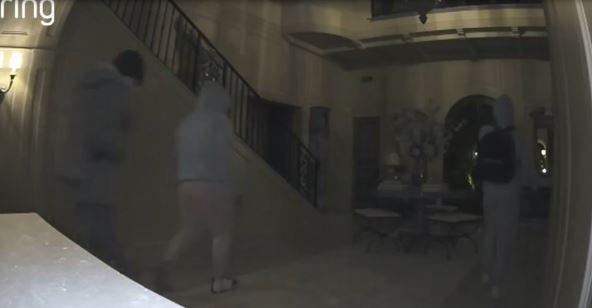The Lebanese Health Ministry says Israel struck a residential building in Nabatieh city in the south of the country.
At least six people have been killed following an Israeli air attack on a residential building in Nabatieh city, in southern Lebanon, the Lebanese Ministry of Health said.
The Health Ministry said early on Saturday that three people were also seriously wounded in the latest attack by Israeli forces.
Lebanese media have reported a higher death toll of eight people killed in the attack, but that figure could not be independently verified.
Israel’s military, which posts regular updates on its air force and artillery strikes on Lebanon, has yet to comment on the attack. Earlier, the military posted on social media that its fighter jets had attacked “military buildings” in the villages of Maroun al-Ras and Aita al-Shaab, which are located more than 50km (31 miles) south of Nabatieh city.
The attacks come as the Lebanese armed group Hezbollah has traded near-daily fire with Israeli forces in support of its ally Hamas since the Palestinian group’s October 7 attack on southern Israel and Israel’s subsequent war on Gaza.
Cross-border clashes since October have seen Israeli forces kill about 570 people in Lebanon, most reported to be Hezbollah members but also at least 118 civilians, according to a tally of casualties by the AFP news agency. Israel has attacked Lebanon more than 6,500 times during the same period, according to the news agency.
On the Israeli side, 22 soldiers and 26 civilians have been killed, according to army figures.
Tensions have soared after a deadly rocket attack in July killed at least 12 people – many of them children, in a Druze village in the Israeli-occupied Golan Heights, which Israel blamed on Hezbollah – as well as Israel’s killing of Fuad Shukr, a top Hezbollah commander, in a missile attack in the suburbs of Beirut.
Hezbollah has promised to retaliate as has Iran for the killing in Tehran of Hamas’s political chief Ismail Haniyeh.
The assassinations by Israel and threats of retaliation have sparked fears of a major regional escalation.
Since Israel and Hezbollah last went to war in 2006, the pro-Iran armed group has increased its military strength, according to analysts.
On Friday, Hezbollah released a video appearing to show its fighters transporting large missiles through tunnels at an underground facility in what appeared to be Lebanon.
Riad Kahwaji, the head of the Institute for Near East and Gulf Military Analysis, a security consultancy, said it was “the most explicit video Hezbollah has ever released showing the size of its tunnels” and weapons arsenal. Hezbollah likely released the video to “deter” Israel from launching a major operation against it in Lebanon, he said.
Hezbollah has repeatedly said that only a Gaza ceasefire deal will stop its attacks on Israeli forces in northern Israel.
Israel’s Prime Minister Benjamin Netanyahu has said his country is “prepared both defensively and offensively” and “determined” to defend itself against both Hezbollah and Iran.
But pressure has been mounting on Israel to agree to a ceasefire deal in Gaza, which would likely avert a wider war involving Lebanon and Tehran.
















![Doors:the movie [trailer] coming soon #doors #fypシ゚ #viralvideo #gacha Doors:the movie [trailer] coming soon #doors #fypシ゚ #viralvideo #gacha](https://i.ytimg.com/vi/bLTZEvyYpfM/maxresdefault.jpg)


Discussion about this post